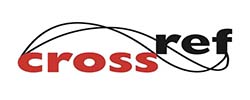Author: Kingsley Tochukwu Ughamba, Nnabueze Darlington Nnaji, Kenneth Ejike Ogbonna, Chukwudi Anyanwu
![]() DOI: 10.22161/ijeab.51.23
DOI: 10.22161/ijeab.51.23
Keyword: Bacteria, sewage sludge, germination, diesel oil, pollution.
Abstract: Bioremediation employing the action of microbes alone has been shown to be inadequate. The aim of this study was to evaluate the efficacy of sewage sludge (SS) in enhancing bioremediation of diesel oil-polluted soil. Diesel oil was introduced into the soil at the concentration of 10 % (v/w) and mixed with 5%, 10% and 15% (w/w) of sewage sludge. The remediation of the oil was determined gravimetrically using n-hexane as extractant. Effectiveness of the remediation strategy was assessed by the seed germination toxicity test. At the end of forty-two days, 32.22 % oil loss was recorded in the unamended polluted soil while 58.33% oil loss was recorded in the soil amended with sewage sludge. Hydrocarbon- utilizing bacteria (HUB) counts were significantly higher (P≤0.05) in the sewage sludge-amended options, ranging from 5.3 ±0.9 x 106 to 12.3±0.75 × 106CFU/g soil, as compared to the unamended control soil which gave 1.0 × 106- 3.8 × 106CFU/g of soil. The hydrocarbon- utilizing bacteria isolated from both the control and amended soils were identified tentatively as Bacillus cereus, Pseudomonas putida, Micrococcus varians, Corynebacterium sp, Acinetobacter sp and Bacillus licheniformis based on their cultural, morphological and biochemical characteristics. The fungal counts in the SS-amendment options were also higher than was recorded in the control option ranging from 3.8x 105 ± 0.2 to 11.6x 105 ±0.25.Aerobic fungi isolated were Aspergillus niger, Aspergillus flavus, Fusarium sp, Cladosporiumsp and Penicilliumsp. The highest oil loss and germination indices were recorded in SS-amended options. There was a significant difference (P≤0.05) in oil loss and germination index between the unamended control soil and amended soil.
| Total View: 1258 | Downloads: 699 | Page No: 150-166 |
Cite this Article:
MLA
Kingsley Tochukwu Ughamba, Nnabueze Darlington Nnaji, Kenneth Ejike Ogbonna, Chukwudi Anyanwu, P.(2020).Selling Points of Sewage Sludge as an Enhancing Agent of Bioremediation of Diesel Oil-Polluted Soil . International Journal of Environment Agriculture and Biotechnology(ISSN: 2456-1878).5(1), 150-166.10.22161/ijeab.51.23
Kingsley Tochukwu Ughamba, Nnabueze Darlington Nnaji, Kenneth Ejike Ogbonna, Chukwudi Anyanwu, P.(2020).Selling Points of Sewage Sludge as an Enhancing Agent of Bioremediation of Diesel Oil-Polluted Soil . International Journal of Environment Agriculture and Biotechnology(ISSN: 2456-1878).5(1), pp.150-166.
Kingsley Tochukwu Ughamba, Nnabueze Darlington Nnaji, Kenneth Ejike Ogbonna, Chukwudi Anyanwu. 2020."Selling Points of Sewage Sludge as an Enhancing Agent of Bioremediation of Diesel Oil-Polluted Soil ". International Journal of Environment Agriculture and Biotechnology(ISSN: 2456-1878).5(1):150-166.Doi:10.22161/ijeab.51.23
Kingsley Tochukwu Ughamba, Nnabueze Darlington Nnaji, Kenneth Ejike Ogbonna, Chukwudi Anyanwu."Selling Points of Sewage Sludge as an Enhancing Agent of Bioremediation of Diesel Oil-Polluted Soil ", International Journal of Environment Agriculture and Biotechnology,vol.5,no. 1, pp.150-166,2020.
@article { kingsleytochukwuughamba2020selling,
title={Selling Points of Sewage Sludge as an Enhancing Agent of Bioremediation of Diesel Oil-Polluted Soil },
author={Kingsley Tochukwu Ughamba, Nnabueze Darlington Nnaji, Kenneth Ejike Ogbonna, Chukwudi Anyanwu , R},
journal={International Journal of Environment Agriculture and Biotechnology},
volume={5},
year= {2020} ,
}
























